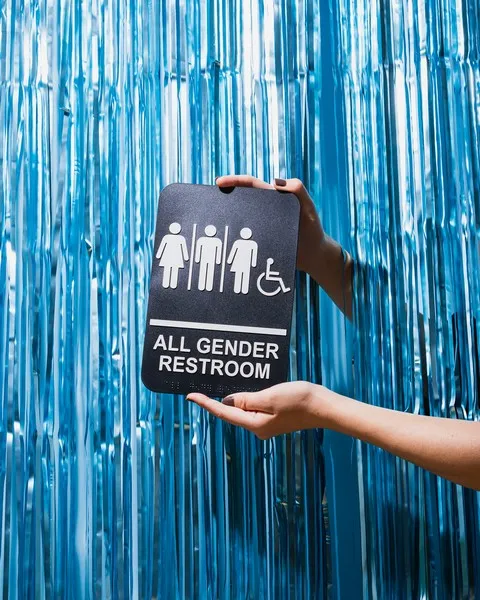Table of Contents
- The Concept of Misandry
- Sociological Theories and Misandry
- Misandry in Institutional Contexts
- Cultural Influences and Stereotypes
- Psychological and Emotional Consequences
- Pathways Toward Greater Gender Equity
- Conclusion
Misandry, or prejudice and discrimination against men, is a topic that has gained increased attention in academic and public discourse over recent years. Within the sociological framework, examining misandry allows us to explore the ways in which gender biases can affect men’s opportunities, social standing, and daily experiences. Despite the focus often placed on misogyny and its harmful impact, overlooking misandry perpetuates an unbalanced understanding of gender relations. This article will address how misandry operates, identify its presence in various institutional and cultural contexts, and explore how it constrains men’s opportunities. The aim is to offer an academic analysis that is accessible to undergraduate students interested in sociology, and to remind readers that dismantling harmful prejudices requires a holistic perspective on gender.
The Concept of Misandry
Misandry is defined as the dislike, contempt, or ingrained prejudice against men. Although historically less recognized than misogyny, misandry can manifest in diverse ways, including but not limited to:
- Hostile attitudes directed at men based solely on their gender
- Popular culture stereotypes that belittle men’s emotional and intellectual capabilities
- Institutional biases that unfairly penalize men (e.g., in legal or educational settings)
From a sociological perspective, misandry does not simply manifest as a personal bias; it extends to beliefs, attitudes, and systemic patterns. By understanding the concept of misandry, scholars can better gauge how gender bias operates in multiple directions and works in tandem with broader social structures.
Historical and Cultural Contexts
The roots of misandry vary across societies and eras. In some periods and cultures, men are portrayed as prone to aggression or emotional insensitivity. These stereotypes are reinforced by cultural narratives and social institutions, hindering the capacity of men to access certain roles or participate in social spheres that emphasize emotional intelligence or caregiving capabilities. Moreover, social expectations to align with traditional masculinities create traps where men are expected to exert dominance, which can, paradoxically, reinforce negative stereotypes against them.
Intersectionality
Intersectionality highlights how gender interacts with other axes of social categorization (e.g., race, class, sexuality). Though the idea of misandry focuses primarily on prejudice against men, it is crucial to recognize that not all men experience it equally. Black men, for instance, may encounter biases both because of their race and their gender. Similarly, men from lower socioeconomic classes might deal with different forms of marginalization that intensify or alter the manifestation of misandry.
Sociological Theories and Misandry
A deeper investigation of misandry benefits from considering key sociological perspectives:
1. Functionalist Perspective:
Functionalists view society as a complex system whose parts work together to promote stability. Within this framework, gender roles have historically been maintained because they served certain social functions, such as defining labor divisions in households and workplaces. While functionalism acknowledges that traditional roles can bring some organizational structure, it can inadvertently legitimize views that marginalize men in certain contexts. For instance, if society valorizes the female role as nurturer to the exclusion of men, it may discourage fathers from actively participating in childcare, fueling misandrous assumptions that men are unsuitable caregivers.
2. Conflict Perspective:
The conflict perspective, influenced by Karl Marx’s ideas, focuses on power struggles between different groups. Applied to gender, this lens suggests that men, historically occupying positions of privilege, often face backlash when gender power dynamics shift. Misandry, from a conflict viewpoint, may be interpreted as a reactionary force that arises in the push-and-pull for power. However, this same perspective would underscore that perpetuating prejudice, even if against a historically dominant group, can create new inequities. Conflict theorists would advocate a systemic approach to dismantle all biases so that true equality can emerge, rather than merely flipping power hierarchies.
3. Symbolic Interactionism:
Symbolic interactionism explores how individuals and groups interact through symbols and shared meanings. From this standpoint, everyday interactions can reinforce misandry if men are routinely labeled as aggressive, incapable of emotional expression, or overly privileged. Small, routine encounters—such as jokes, casual comments, or even social media posts—can aggregate into collective narratives that sideline men’s experiences. Symbolic interactionists stress that these narratives are negotiated in social contexts, meaning they can be reshaped if social actors are motivated to challenge harmful stereotypes.
By examining misandry through these theoretical frameworks, we see that prejudice against men is not merely an isolated phenomenon, but rather an interplay of institutional roles, power struggles, and shared social meanings.
Misandry in Institutional Contexts
Societal institutions, such as the family, education, workplaces, and legal systems, reflect and reinforce broader cultural attitudes. Where biases exist, these institutions can perpetuate structural or policy-based disadvantages. Misandry can manifest in institutional contexts in both overt and subtle ways, influencing how men navigate society.
Family and Childcare
In many societies, the expectation still exists that mothers are the primary caregivers. While efforts to promote fathers’ involvement have increased, men sometimes face suspicion when they take on caregiver roles. In cases of child custody disputes, courts can hold ingrained biases favoring mothers. Consequently, men’s role in caregiving is diminished or not adequately recognized. These biases can lead to emotional distress and further sideline men from active participation in nurturing roles.
Educational System
The educational system is influential in shaping attitudes, career aspirations, and self-perception. Over recent decades, concerns have been raised about the underachievement of boys in certain academic subjects and the lack of men in fields like teaching and childcare. While these phenomena do not necessarily prove institutional misandry, they indicate the system’s failure to address the distinct learning needs and experiences of male students. Additionally, male teachers may feel stigmatized if they choose to work in early-childhood or elementary education, given societal assumptions that these roles are more naturally suited for women. This stigma can become self-reinforcing, as fewer men enter these fields, perpetuating the perception that men are outsiders in nurturing or educational contexts.
Workplaces
Get the full article AD FREE. Join now for full access to all premium articles.
View Plans & Subscribe Already a member? Log in.





